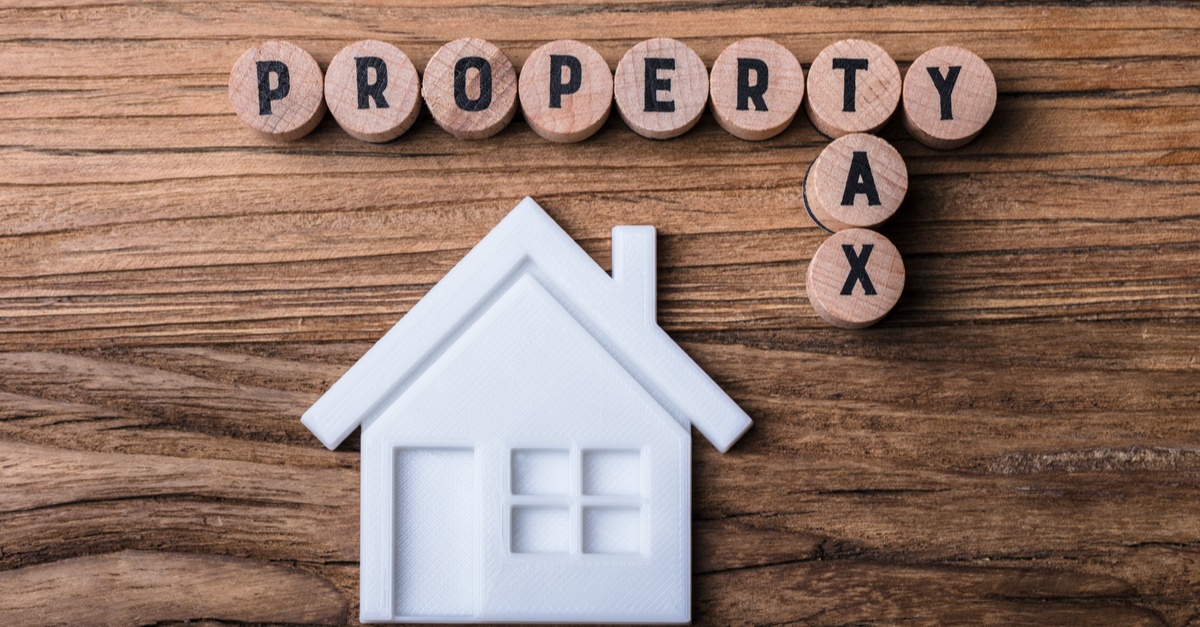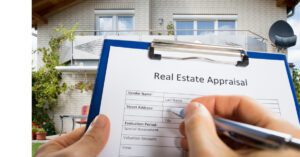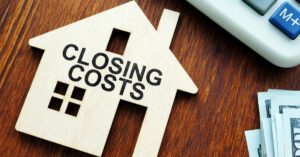Written by Ryan Waller, Guelph real estate agent
Updated February 21, 2024
Original post May 28, 2022
Jump links:
Property taxes vs tax assessment
Where do you pay property tax payments?
What home improvements increase property taxes?
Does an inground pool increase property taxes?
If I live in a condo, do I pay property taxes or condo fees?
Do you pay taxes monthly or yearly?
Can I pay property taxes with a credit card?
What happens if you can’t afford property taxes?
How do I protest property taxes?
Property taxes are one of those things that as a homeowner, you pay. But what exactly do property taxes include? How are they determined, how do you pay them and what influences property tax? We’ll take you through that.
First off: there is a difference between income tax and property tax. These are two different taxes that are in no way related!
What are property taxes?
Property taxes are the amount of taxes that you are required to pay as a homeowner to your local municipality. Property taxes are calculated using the assessed value of your property and multiplying it by the combined municipal and education tax rates for your class of property.
Your municipality or local taxing authority will use these taxes to help pay for the services they are responsible for such as:
- police
- road maintenance
- waste disposal
- parks and leisure facilities
Education tax rates, set by the Ontario Government, may also be applied using these assessed values.
How are taxes assessed?
The Municipal Property Assessment Corporation (MPAC) assesses the value of all properties in Ontario based on several factors including location, age, size, lot size, and property type (single-detached home, townhouse, multi-residential, commercial, industrial, retails etc.) to determine their market value.
The City of Guelph sets a tax rate for municipal services, and the Province of Ontario sets a rate for public education. The tax rate is applied to the assessed value of the property.
Property taxes vs tax assessment
What’s the difference between property taxes and tax assessment? Although they are links, they are not the same thing.
A tax assessment
Is a value relative to your specific real property (buildings and land) by the local government. Specifically, this is for the purpose of levying and collecting tax money that is used to support your community. This assessment is done by the Municipal Property Assessment Corporation (MPAC).
The lower the assessed value, the lower your tax bill will be. MPAC provides an assessment update to homeowners every 4 years that takes into account of variety of factors. This is known as Current Value Assessment. It takes into account information from a variety of sources. This includes the following information: sales changes over the 4 year period, land title documents, building permits and more.
MPAC states that they will consider as many as 200 factors for an assessment. However, 5 factors make up 85% of the value. These include: location, lot dimension, living area (square footage), age of the structure (which includes renovations or updates) and quality of construction. The next MPAC update in Ontario is 2024.
As an example, an unrenovated home in the city is not the same as a renovated home with a right of way. (read: difference between easement vs right of way). The assessment for these will be different because different factors are considered.
Property taxes
Are based on the value of the tax assessment. This is the amount that you need to pay the municipal government.
Where do you pay property tax payments?
There are a number of payment methods to pay property tax. Typically your municipality will have an online payments option to pay your property tax bill through their web site. Alternatively you can pay it directly from your financial institution. Just use you bank account and pay through your online banking. This option allows you to pay your taxes in a similar way to how you would pay a bill.
The other option is to go to a municipal run office, such as City Hall to pay your real estate taxes in person via debit card transaction . There is also the option to pay your taxes by mailing a cheque to your municipal office or potentially even putting it in a drop box (although we don’t recommend this). Just be sure to include your account number / parcel number / bill number with your fee amounts!
What home improvements increase property taxes?
Generally, anything you do to your home that positively impacts the structure (your home) or the lands (the total lot) will result in a higher property tax amount. This could include the following items:
- Home additions that required a building permit
- New bathrooms (even in existing space)
- Foundation or structure renovations
- A garden shed or outbuilding
- A hot tub
- A new fireplace
- Converting a porch to a four-season room
- Finishing a basement
- Land improvements, such as paving a dirt driveway or fencing the property
- Things like RV’s, trailers, boats and motor vehicles DO NOT impact your property tax statement
Remember that property taxes vary by location and the decisions of your local assessor’s office.
Does an inground pool increase property taxes?
Quite possibly. For years, Guelph real estate agents and their buyers have viewed pools in different ways. In a buyers market, often buyers would view pools as a negative. A buyer choosing between two homes that were otherwise similar may choose the non pool option due to maintenance and upkeep.
During COVID, buyers view pools as a luxury because many people stayed at home instead of going on vacations. This resulted in a huge demand in the pool sector that wasn’t applicable in prior years.
If you’re buying a house that has a pool, it may increase your overall tax assessment. Therefore, you can expect that it may have a small increase on your property tax. This is true for any major improvement on your home, not just a pool.
As an example, we put an addition on our house in 2015. This addition resulted in an incremental $215 on our tax bill for 2015.
If I live in a condo, do I pay taxes or condo fees?
In some very rare situations, condo fees include property tax. However, in the majority of cases unfortunately condo owners pay both condo fees and property tax. Condo fees and property tax pay for different things.
Condo fees cover the day to day expenses of running the condo you live in: maintenance of common areas and amenities, snow removal, landscaping and like services. Details of these can be found in the condo’s status certificate
Property taxes pay for the services as mentioned earlier in this blog.
If you’re considering a condo, be sure to factor both of these into your budgeting. However, because of a number of factors, including square footage and number of bedrooms, condo buyers can typically expect to pay lower property taxes than those buying semi or detached homes. (read: what is a detached house?).
This is because a condo has less space per taxpayer than a single-family home. In a condo taxpayers will share in the tax due for the land and the common areas such as hallways, lobby, and stairs, he says.
Do you pay taxes monthly or yearly?
There are a variety of ways and payment options to pay your taxes, either in full or by partial payments. But the end result is the same: pay your total amount of tax on the due date one way or another!
As an example, most residents receive a tax statement outlining tax due dates. In Guelph, these dates are Feb 28, April 30, June 30 and Sept 30. You can choose to pay on this schedule, but if you are late you will be subject to a late payment penalty.
If you follow a monthly budget and it’s easier to pay 12 even payments per year, you can do that too! Just take the total annual tax value, divide it by 12 and pay via online banking per month.
Some banks allow homeowners to roll the value of the property tax into their regular mortgage payments and the bank pays on your behalf. This is especially helpful if you’re bad at paying bills on time!
It may impact your ability to get the best mortgage rate possible, so be sure to ask before committing to this.
Can I pay property taxes with a credit card?
Most municipalities will allow you to pay property taxes via credit card transactions. However, know that there may be an additional flat fee convenience fee or service fee to make credit card payments. Paying by credit card may be a great way to earn extra loyalty points with your credit card companies!
It’s worth noting though, that this may not process the same day. Sometimes credit card providers process the next business day or even two business days later.
What happens if you can’t afford property taxes?
If you don’t pay your taxes on time, property owners will get an additional charge. Note that they will charge credit-card type interest late penalty on unpaid tax.
If you put your head in the sand and continually refuse to pay, the municipality can seize your property and sell it to recoup the taxes. In Canada, this will most likely be through a power of sale. However, this is a very rare process that happens only if you continually ignore a lender, as they will likely try to work with you on payments.
The local government relies on everyone to pay their taxes to fund the annual municipal budget. If you don’t pay by the delinquent date, the local government has no other option. The tax collector will attempt to foreclose on the property for which taxes you owe. However, most homeowners will try to arrange some sort of agreement with the municipality to avoid losing their home.
Additionally, the current mortgage lender will mandate that you keep your property taxes up to date and pay the entire amount due. If you don’t, your mortgage company can refuse to renew your mortgage.
How to protest your property taxes
Think your property taxes are too high? There are a number of reasons why someone may choose to appeal tax assessments according to MPAC, including the following reasons:
- You believe your property’s assessed value is incorrect
- You believe your property’s classification is incorrect
- An individual was wrongly omitted or placed on the assessment
- A person was wrongly omitted or placed on the assessment in respect of school support
- You have more than one property classification listed on your Notice, and the portions of assessed value for each class are incorrect. For example, your property may include both commercial and residential portions.
If you have more questions on property tax, feel free to reach out to Beth and Ryan, Guelph Realtors



